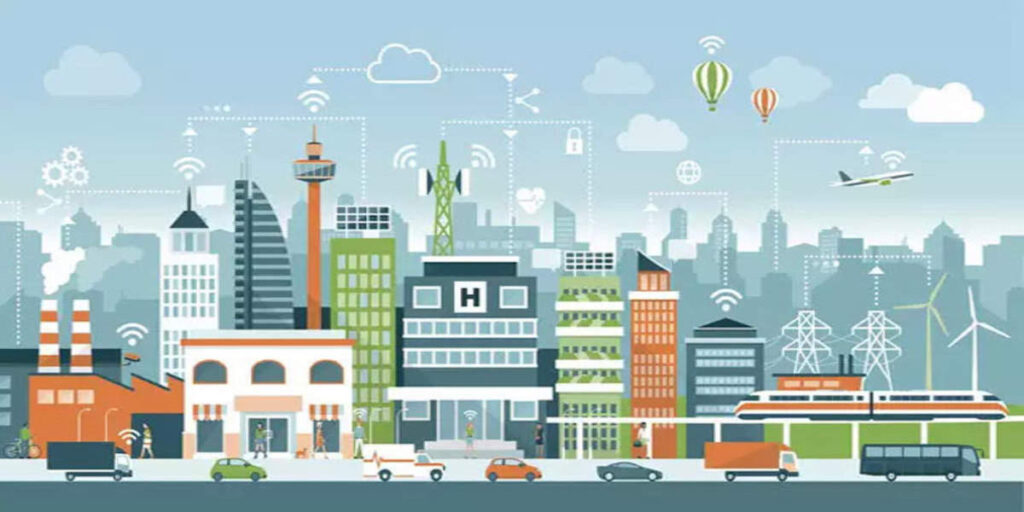Time to Reorient Smart Cities to Tackle Covid Challenge

Launched in 2015, the Smart Cities Mission was formulated as a 5-year holistic programme, aimed at providing Rs 1000 crore to each of the 100 selected cities(borne equally by the Centre and states) between 2017-22 to rejuvenate their core infrastructure . Each city was required to create Special Purpose Vehicles (SPVs) to raise additional funding from the market. The strategy to implement the mission revolved around area based development, housing inclusiveness , creating walkable locations, enhancing citizens security, preserving and developing open areas and more importantly cost-effective citizen-friendly governance.
Over the last five years, the mission has made considerable progress which is evident from the statistics. A total of Rs 205018 crore of investment for 5951 projects in 100 smart cities is proposed. Till now, tenders for 4869 projects , costing Rs 168209 have been issued. For 4038 projects, costing Rs 131295 crore, the work is in progress or completed.
For SCM, digital transformation of cities holds the key to its success and the future of our cities and their residents. Digital transformation of cities can help meet the major objective of making governance citizen-friendly, cost-effective, transparent and accountable. Data is the key driver to all policies, programmes, projects and measures. Therefore , the focus on big data and the city’s behaviour towards its data management is a critical element towards being a truly smart city. Siemens has created a global data-driven index – Atlas of Digitalization, to rate cities based on digitalization readiness and digitalization potential.
The current challenge therefore is to make our cities data-driven. Built environment data- the authenticated Digital DNA of all cities, is already captured by cities in various formats and processes through building, engineering and planning departments, besides postal services. The integration of city’s data in an accurate and authentic manner is a key to a proactive approach to follow the path to becoming a smart city. And for that, we need a proactive approach of identifying and managing the city’s Digital DNA – the building blocks to effectively and efficiently use the city’s ability to repurpose its existing data and documents associated with the built environment.
While Corona pandemic has caused massive disruption, it has given us an opportunity to recalibrate the Smart Cities Mission and build sustainable cities, better equipped to handle such pandemics. It has also exposed the absence of strong and resilient health systems in our cities which act as the first line of defence not only against disease outbreaks but also for meeting everyday health challenges.Considering that by 2025, 40% of India’s population will be living in urban areas, there’s need to upgrade health infrastructure to address challenges posed by pandemics like Covid 19.It is an irony that creation of health infrastructure is very low priority in smart cities. In overall spending under Smart Cities Mission heads, only 2.3% is dedicated to health and education and only about 1% of smart city projects are for health infrastructure and capacity building. Only two sectors- environment and solid waste management have got a share of investment equal to health and education. In contrast, area development (23%) accounts for highest share followed by urban transport (14%), water supply (11%), housing (9.9%) IT Connectivity and digitization (8.5%) energy (7.2%), sewerage & septage (7.2%) and economic development (6%).”
So far, the major focus of smart cities has been to make cities economically vibrant. But now in the post- Covid scenario, Smart Cities Mission needs to be re- focused and reoriented with greater priority to health as our cities can become economic engines only if its citizens are healthy. And we can achieve it successfully by leveraging digital technology .
The writer is Editor, PropTOQ real estate magazine.


